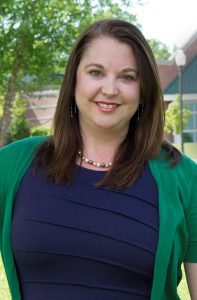 1. When do you suggest students begin exploring medical programs?
1. When do you suggest students begin exploring medical programs?
As soon as you have made the decision to pursue the medical field, you need to begin exploring programs. This can be done in a variety of ways such as attending graduate fairs, presentations, open house events, and even contacting the program itself for a tour and individual meeting. Spending time on campus and speaking to those involved with a program can show you what the campus culture and facilities are really like, versus looking at a view book or information online. It’s also important to develop and maintain relationships with programs you are most interested in as this can put a face with a name when they begin reviewing applications
2. When reviewing applications, what attributes stand out besides GPA and MCAT scores?
Schools can vary on this, but for our school, we are looking for individuals that match our mission statement. During the review of an applicant, we look for activities and examples that show an alignment with our goals as an institution. This includes excellent clinical experiences (scribing, EMT, nursing, etc.), community involvement (especially in rural locations), and instances where an applicant is in a leadership role. We also look for a strong personal statement that gives us better insight into why you want to become a physician.
3. When writing personal statements, what tips can provide for a strong statement?
Personal Statements can be hard to write. Be sure that you use every character you can and that it is your voice coming through. Stay away from using famous quotes as this can detract from your overall message. This is a time not to think outside of the box and try to do something different. Write about your journey and why you have chosen this career path. Try to stay away from sensitive material that you are not comfortable sharing in a setting such as an interview without causing you to become emotional. Finally, if you present information in your statement that is medically related about a person you worked with, do not identify the person you are discussing; instead, give them a different name or refer to them as “Patient J” for example.
4. On interview day, what suggestions do you have for students?
On interview day, present your best self. You want to come into the interview dressed professionally and groomed appropriately. Remember that the entire time you are visiting that campus, eyes are on you. Stay interactive throughout the entire process. This includes speaking to other applicants, admissions staff, and those you come in contact with throughout the day. Interview day is not just about a program interviewing you; you are also interviewing the program to see if it is a fit for you, so come prepared with questions. If you are interviewing in a small town, know that the community is also watching you and will report to the school if you participate in any inappropriate behavior. This should go without saying, but put down your phone. Your interview day is extremely important and spending your time texting or paying attention to what is going on through your phone makes you come across as uninterested.
5. How can students convey a stronger and improved academic record to admissions committees?
Students can best convey an improved academic by discussing it within their application. Seeing students that struggled and then began performing well in later undergraduate work on in to graduate study is not uncommon. It actually can work to your advantage as it shows that you dealt with failing or some sort of adversity and you used it to seek out help, change study habits, or fix what was not working for you. Professional school programs are looking for an “upward trend” in regards to academics, so be sure that you record reflects this. You can attempt to reach out to program individual; however, not all programs will take the time to discuss your application.